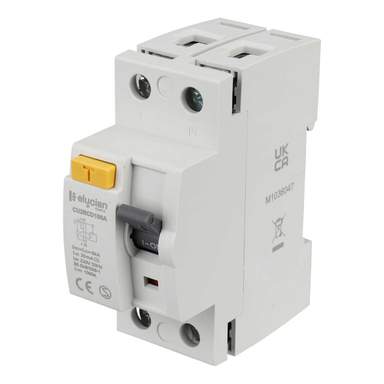As Scotland continues to raise the bar for housing standards, a significant update to the ‘Repairing Standard’ in Scotland for landlords is set to make rented properties safer and more comfortable for tenants. This is happening, we are not far away from the deadline.
Among the various improvements, a notable change coming into effect from March 1st, 2024, focuses on electrical safety – a critical aspect of any dwelling.
We are creating a series of articles on areas of the updated Repairing Standard – this first article explores these changes and what they mean for landlords and tenants alike.
Understanding the Repairing Standard Scotland 2024
In the search to ensure the highest safety standards in rented properties in Scotland, the Scottish Government has introduced specific requirements concerning electrical systems in private rented properties. From 01/03/2024 a key requirement is that all electrical installations must be protected by a residual current device (RCD). This is part of many other electrical requirements in rented properties in Scotland.
The Scottish Government Publication Section D.54 states:
“In order to protect a tenant against electric shock and reduce the risk of electrical fires, there must be one or more Residual Current Devices (RCD) fitted in the consumer unit (fuse box). An RCD is a sensitive safety device that switches off electricity automatically if there is a fault. RCDs offer a level of personal protection that ordinary fuses and circuit-breakers cannot provide. The absence of an RCD means that the house does not comply with the Repairing Standard.”
What is an RCD and why is it important?
 A Residual Current Device (RCD) is a life-saving device designed to prevent you from getting a fatal electric shock if you touch something live, such as a bare wire or a damaged accessories like sockets, switches lights and fuse board or consumer unit within your home.
A Residual Current Device (RCD) is a life-saving device designed to prevent you from getting a fatal electric shock if you touch something live, such as a bare wire or a damaged accessories like sockets, switches lights and fuse board or consumer unit within your home.
It can also provide some protection against electrical fires and reduce the risk of death if you come into contact with electricity. RCD’s offer an increased level of personal protection that ordinary fuses and circuit-breakers cannot provide.
Residual Current Devices (RCDs) with ‘high sensitivity,’ typically rated at 30mA or as low as 10mA, are engineered to disconnect power rapidly – within 40 milliseconds at 150mA and within 300 milliseconds at their rated tripping current. This swift action is crucial for protecting individuals from electric shocks.
You may have an RCD installed in your property, but it is key to have this tested by the tenant on a regular basis, some letting agents request this to be tested weekly to ensure that the device is operating as it should and when you need it most.
When you are having an EICR carried out by a SELECT or NICEIC registered electrician this will be tested as part of the EICR, in some cases when you have an electrician in your property carrying our repairs you can ask for the RCD to be tested for peace of mind.
Implications for Landlords of the new repairing standard
This will completely change the way that landlords have been maintaining their properties and the way electricians who have been passing EICR tests for ease of paperwork and pressures from landlords.
IES have found in the past that some companies will pass certificates due to the hassle of going back to carry out remedial work, at time pressure from the landlords to pass the certificate can also come into play, both situations are not acceptable.
If you have a valid EICR certificate you will still need to act on this repair prior the renewal date of your EICR. Properties must have an RCD installed to comply with the new standards. This is not just a legal requirement but a moral obligation to ensure the safety and well-being of tenants.
We recommend addressing this matter well before the deadline to avoid the last-minute rush. As the deadline approaches, electricians are likely to be in high demand, particularly from landlords who have delayed their repairs. By planning, you can ensure that your electrical safety measures are in place in a timely and stress-free manner.
If you are unsure if you have RCDs or not, you can upload a picture of your fuse board along with your most recent EICR here and we can advise you on what you need to do.
If you have a letting agent managing your property and they have not brought this to your attention, please question this with them as ultimately you will be liable for any repercussions.
Landlords Beware
For all landlords, it’s important to note that not having Residual Current Devices (RCDs) installed could lead to complications when updating your property’s electrical system, such as when installing a new fuse board or consumer unit.
Introducing RCDs into older electrical wiring systems can reveal previously undetected electrical faults due to the heightened sensitivity of these devices. When these circuits are energised, you might encounter issues that prevent the RCD from functioning properly. In such scenarios, it may become necessary to either rewire or rectify the existing wiring.
Additionally, there could be a need to repair or replace certain appliances that are not compatible with the new system. Good management and scheduling by Edinburgh’s favourite electricians will reduce any power loss by your tenants and keeping your compliance up to date.
Benefits of the repairing standard for Tenants
For tenants, this regulation offers an added layer of safety. Electrical faults, which can range from minor inconveniences to deadly accidents, will be significantly mitigated with the installation of RCD’s. This move goes a long way in enhancing the overall safety standards of living spaces in Scotland.
For Tenants and Landlords in Edinburgh
The updated repairing standards by the Scottish Government reflects a commitment to ensuring that rented properties offer safe, secure, and habitable living conditions for tenants. The specific focus on electrical safety underscores the importance of modern, reliable, and safe housing infrastructure.
As we move towards the 1st of March 2024, landlords must take the necessary steps to comply with these standards, thereby contributing to a safer and more secure living environment for you, their tenants.
Landlords: It’s time to act! Review your property’s electrical systems and ensure compliance with the new standards.
Tenants: Stay informed about your rights and the safety features that should be present in your home. Together, let’s work towards a safer and better standard of living in Scotland’s rented properties.
Find out more about the updated Repairing Standard
Part 2 of our industry update focuses on Fixed Heating Repairing Standard in Scottish Rented Properties.
Part 3 of our industry update focuses on Fire Safety Repairing Standard for Scottish Landlords.
Part 4 focuses on the Water Safety Repairing Standard in Scottish rented properties.
You can also find further details about the updated statutory guidance on the Scottish Government website.


Thanks for this invaluable information.
Can you please just confirm that this only needs to be done at change of tenancy or renewal date of EICR; not by March 2024?
Many thanks
Hello Jay,
Thanks a lot for reaching out and sharing your thoughts on our content, we’re glad you found it useful and appreciate you engaging with our blog.
To ensure clarity, please note that the repairing standard becomes mandatory starting March 1st, 2024. You are required to meet these standards by this date.
Compliance with this standard cannot be deferred until the change of tenancy or the renewal date of the Electrical Installation Condition Report (EICR).
Immediate action is required to meet these requirements by the specified date.
We’re here to assist further if you have any more questions or need clarification on this matter.
Mark Denholm
Hi Mark
Excellent blog.
Worth noting that a revised version of the guidance was issued on 1 February and there a few changes to the section on RCD protection. In particular they have clarified which circuits need to be covered, as a minimum, by an RCD.
Best Wishes
Andrew
Clan Gordon Letting
Hi Andrew,
Thanks for letting us know about the updated guidance from 1 February 2024, especially the changes concerning RCD protection. We’ll review the new information and update our blog to reflect these changes.
Appreciate your help in keeping us and our readers informed.
Best,
Mark
Hi Mark,
Thanks a lot for putting this article together. Really informative.
Always been a pleasure working along with you and the team and thanks for keeping us right!
Blair Fraser
Hi Blair,
Thank you so much for your kind words. I’m thrilled to hear you found the article informative! It’s always been a great experience working with you too.
Mark
Hi Mark
Thank you for the information. Greatly appreciated.
Thank you also for the link provided to check information. This is a fantastic addition to your article.
Monica McGinty
Hi Monica – thanks for the feedback, we are pleased that letting agents are finding our articles on the new repairing standard useful. All the best.
Super informative article and the all important “if you’re unsure, upload a picture/your recent EICR…’ for landlord support and reassurance. Practically a public service you’re offering here! Please continue to keep your blog updated.
Thanks Linda – you’re making us blush! More seriously, it’s a really important topic and when someone uploads a photo it only takes us a minute to be helpful and respond 🙂
Hi Mark,
I take it this new legislation also applies to industrial facilities?
Regards
Bobby (raitken@gategroup.com)
Hi Robert,
Great question.
The repairing standard only applies to private rented properties in Scotland, this does not include commercial or industrial facilities.
Hope this helps and thanks for reaching out,
Mark